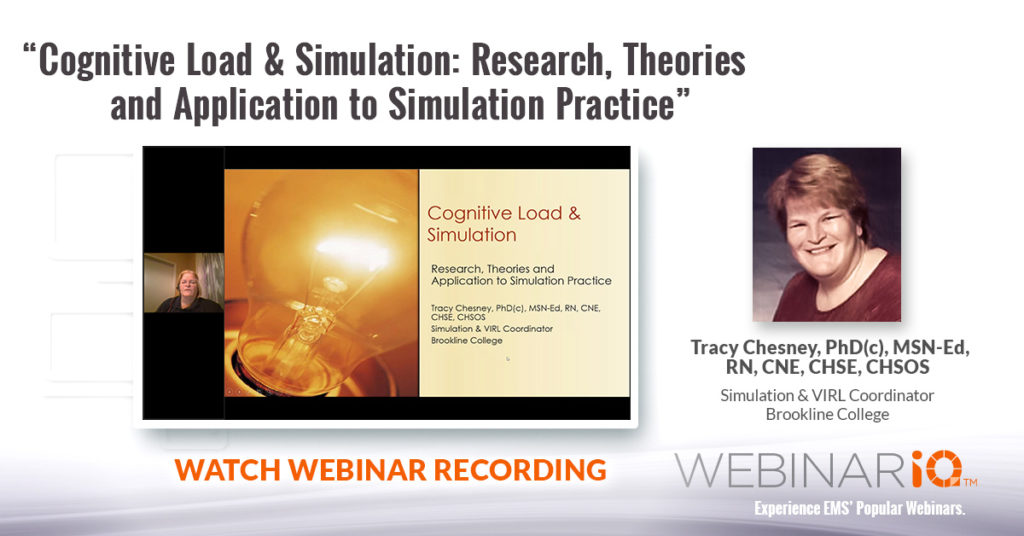Thanks to everyone who joined us for our September webinar, “Cognitive Load & Simulation: Research, Theories and Application to Simulation Practice,” presented by Tracy Chesney, PhD(c), MSN-Ed, RN, CNE, CHSE, CHSOS, Simulation & VIRL Coordinator, Brookline College.
Weren’t able to join us for the live event? Complete the form to access the FREE recording.
Cognitive load (CL) is multidimensional, consisting of mental load and mental effort. The stages of information processing include attention, processing, memory storage, and action. Components of CL can compromise the states of processing and memory storage which impacts mental effort.
When students transition to practice, there is an increase in emotional or cognitive factors that may contribute to an increased load on working memory potential, resulting in cognitive overload. The current COVID-19 pandemic has prevented students from experiencing real time, face-to-face patient encounters, thus there is the potential for an increase in higher emotional or cognitive factors upon the transition to practice.
Don’t miss this opportunity to explore instructional strategies based on current research and theories associated with CL in simulation curriculum development. Plus, better understand the current state of research in cognitive load associated with simulation; identify theories used in association with cognitive load in simulation curriculum development; and apply the current research and associated theories in the development of a simulation curriculum map.
For this and more, complete the form to access the recording!
Watch the On-Demand Webinar
Looking for more webinars? View our archives HERE.

